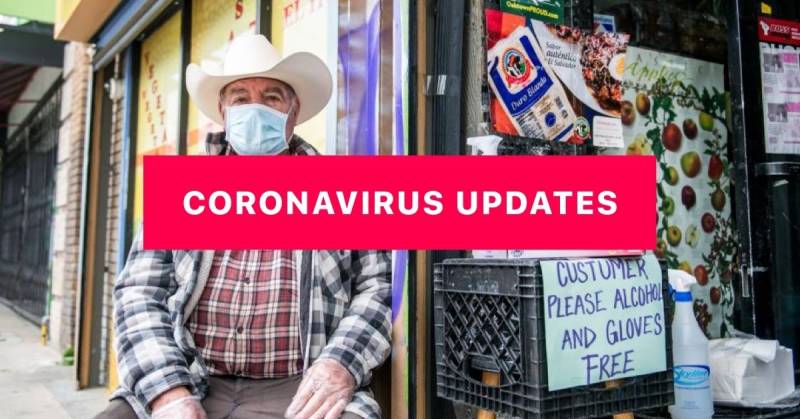San Francisco officials are lauding a city pilot program that has brought in about 2,000 K-12 students in small, in-person learning hubs without a single COVID-19 outbreak and citing the program as evidence that the city can find a safe way to bring public school students back into the classroom.
The San Francisco Department of Public Health defines a school outbreak as three or more confirmed cases that are not from separate households or separate classrooms within 14 days. Some isolated infections of children in the program have occurred but have been attributed to community spread outside the hubs.
826 Valencia, a community center for kids in San Francisco’s Mission District, is one of nearly 80 locations around the city where children who are at highest risk of falling behind, including homeless and foster care students, have gathered over the past few months to study, socialize and participate in after-school programs.
Beth Wilmurt runs a couple of music classes on percussion two days a week. She teaches kids from kindergarten to fifth grade, both outdoors and indoors.
"I brought a whole bunch of different percussion instruments and noisemakers and we're doing rhythm," Wilmurt said while watching her young students practice a clapping game. "Each kid has their own stations with a lot of space in between them. Everyone wears a mask. I have to write down my temperature every day."
She says she feels safe.
"I know that there was a lot of thought going into this ahead of time and maybe a lot of practicing or setting up the space before kids even got there. Just a lot of time and care," she said.
Mayor London Breed touted the program at a press conference this week, saying "the lessons we've learned at the hubs can inform the hard work that we're doing right now to reopen our public schools."
Maria Su, the director of San Francisco’s Department of Children, Youth and their Families, says 15,000 students in private schools have also been following the same safety protocols as they returned to classrooms.
Between the private schools and the hubs, she said, that's "17,000 [kids] and no COVID outbreaks. As demonstrated by these hubs, it is very possible for us to open safely for in-person learning for children."
Su says the city has had to hire 500 people to staff the hubs' classes of no more than 14 kids while maintaining the necessary sanitization protocols. The program has cost $50 million to date, Su says.
"It is really expensive."
UCSF epidemiologist Kirsten Bibbins-Domingo says schools should be able to open safely in January "if everybody does their part now over the holidays." That means adhering to the tried and true protocols of wearing masks, physically distancing from other people and keeping your social network small.
The district announced on Friday, however, that it will not start reopening next month.
For now, the city plans to continue with its hub program and expects to enroll 1,000 more students in January.

